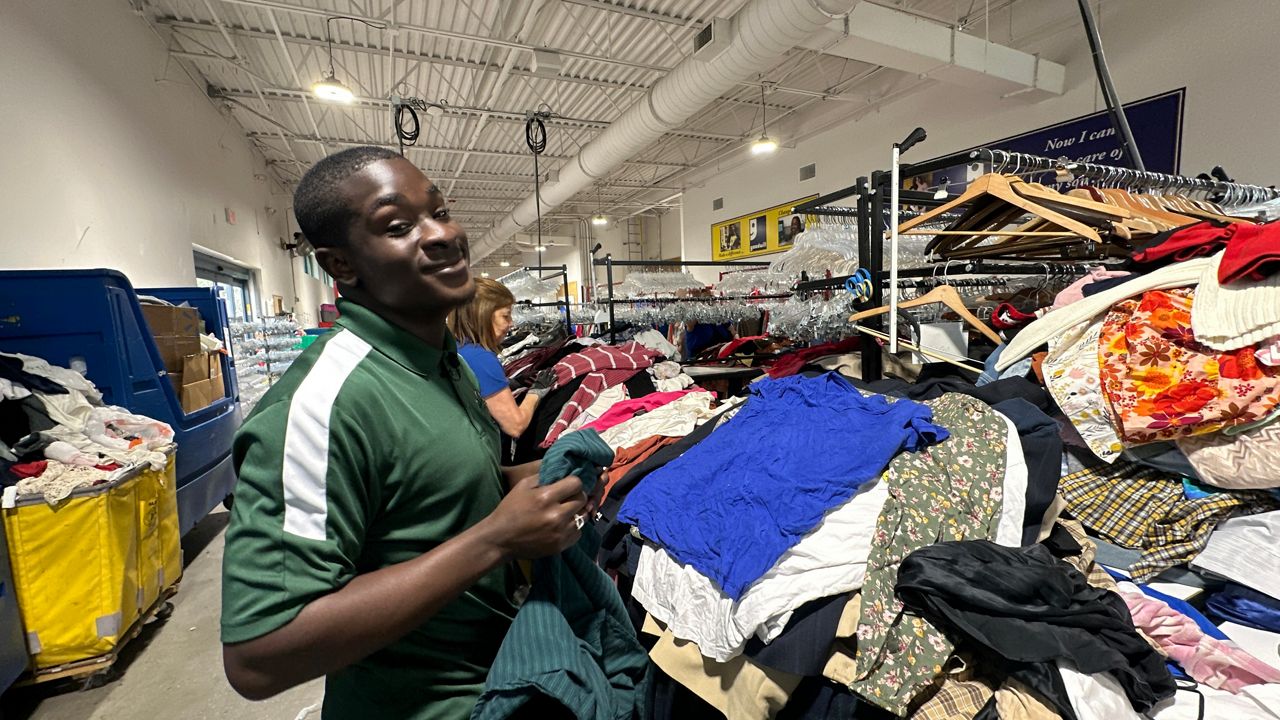TAVARES, Fla. — A Lake County commissioner is proposing a local ordinance that would make it easier for law enforcement to remove unauthorized immigrants in the county.
At a meeting Tuesday morning, commissioners discussed the idea, but they did not vote on it or make any decision.
District 1 Commissioner Anthony Sabatini said the ordinance would give local law enforcement the ability to remove people who are in Lake County illegally.
“We pay a lot of costs for that in terms of prisons, jails and just other issues ... so this makes it easier to remove people who came illegally,” Sabatini said.
He cited a similar ordinance, Ordinance 2025-147-E (below), that was recently passed in the city of Jacksonville.
“I think every community needs to do it," Sabatini said. "I think Lake County is uniquely positioned to do it, because obviously the people here already agree that it's the right thing to do and we need to do at least what needs to be done to reduce illegal immigration."
He argued the ordinance would be a counterpart to the federal law, and that it would help local law enforcement.
“We have one of the best sheriff's departments in the state. We have, I believe, eight municipal police departments that are all doing a great job. And they would appreciate the county assistance and partnership and giving them the tools they need to enforce our nation's immigration laws,” Sabatini said.
In February, Senate Bill 4-C, known as the Unauthorized Aliens, Nationality, and Immigration Act, was signed by Gov. Ron DeSantis — providing criminal penalties for adult unauthorized aliens who enter the state after entering the country illegally.
In April, Miami-based Judge Kathleen Williams issued a 14-page decision granting a request for a temporary restraining order against the law, calling it likely unconstitutional.
Felipe Sousa Lazaballet is the executive director of Hope Community Center, and an advocate for the immigrant community in Central Florida.
“Federal immigration law. The name says it all … within the jurisdiction of the federal government, not local counties. So, Lake County taking this aggressive approach to immigration enforcement is also unconstitutional,” Sousa Lazaballet said.
He said ordinances like the one proposed are a betrayal of immigrants who are criminalized through laws that take away their due process.
“Lake County has benefited tremendously from immigration," Sousa Lazaballet said. "It is a highly agricultural community and many of the farm workers are immigrants.”
District 5 Commissioner Timothy Morris raised concerns about the costs associated with passing and enforcing an ordinance like the one proposed by Sabatini, including the impacts it could have on the jail population, cost of the housing, medical and public defender representation.
“I think we are stepping in an area that the federal government already does work,” Morris said.
Morris cited a portion of the Jacksonville ordinance authorizing funds for the Jacksonville Sheriff’s Office to purchase 25 mobile fingerprinting devices.
“We don't want to do anything that's going to cause a budgetary issue,” Sabatini said. “I believe, and I think the evidence will show, that a law like this will actually lower costs for counties because you'll be able to more quickly deport people who are sitting in the jails.”
Sousa Lazaballet said an ordinance like this could have negative repercussions for local law enforcement agencies.
“Let's be clear: When people are afraid of the police, they don't come forward when they're a victim of a crime or they're a witness of a crime, which makes our communities even more unsafe,” Sousa Lazaballet said.
Sabatini said he’s been in communication with the two councilmen in Jacksonville who passed the similar ordinance in their city — and they advised waiting to vote on the Lake County version until the court makes a decision.
“Once we have drafted an ordinance and once the courts have cleared any legal problems they have with an ordinance like this, we're then going to draft the ordinance within conjunction with the state attorney, the city attorney here and the sheriff to make sure it's something that everybody's on board for,” Sabatini said.
Sabatini said the county could be seeing a vote on this ordinance anywhere between the next few months to a year, depending on the court system’s decision.




